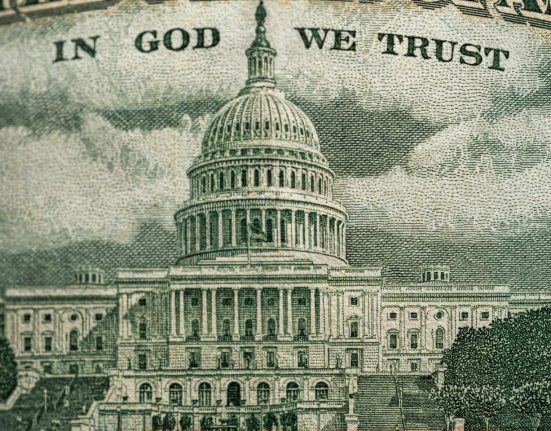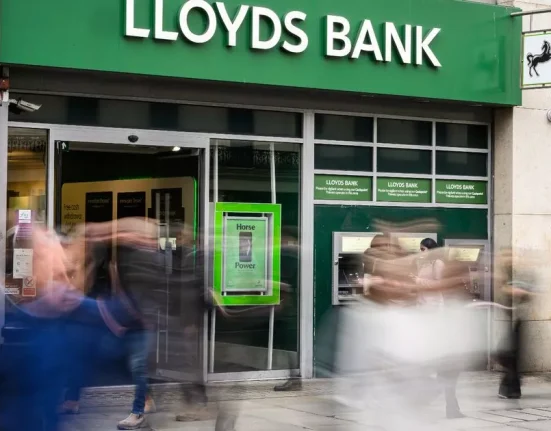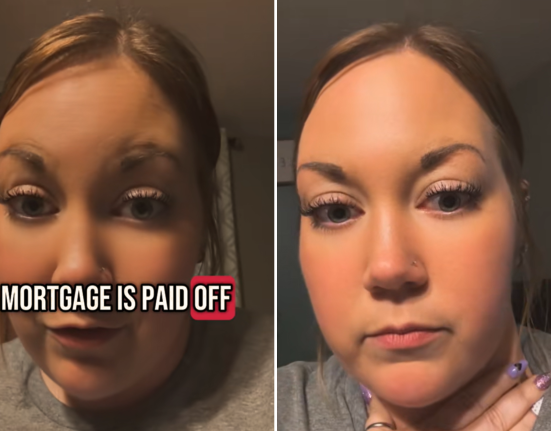Mortgage valuers are increasingly putting prices on homes that are much less than they are likely to be worth, according to brokers – a practice they have called ‘atrocious’.
Brokers across the industry have said valuers have become overly cautious with their estimates, at a time when property prices are flatlining.
The mortgage valuation is intended to assess that the property fits the lender’s criteria, and that it is worth what a buyer has agreed to pay for it.
Often the valuer doesn’t even step inside the home, and instead simply drives past it or looks for it online.
The valuer will base their assessment on similar homes in the local area that have already sold.
So-called ‘down valuations’ are a problem because they can cause a lender to turn down a mortgage offer, or a home buyer or seller to have to renegotiate the price or borrow more.

What price? Valuers will assign a monetary value to the property as part of the buying process
Adam Stiles, managing director at London-based mortgage broker, Helix Financial Partners, says three of his customers have had properties down-valued by over £1m in recent weeks.
‘We’ve had some atrocious valuations of late,’ said Stiles. ‘One valuer went round to value two finished new builds, and gave a value of £1.7m.
‘We then took the deal to another lender that instructed a different valuer who, two weeks later, valued the properties at £2.8m. That’s a £1.1m difference in value and it’s simply crazy.
‘In another example, a freehold house in prime London estimated at £3m was worth £1.4m. This is after previous valuers had agreed with the estimates of the borrower.
‘There needs to be more accountability and means for impartial appeal.’
Jack Tutton, director at Fareham-based broker SJ mortgages, also said down valuations are becoming more common.
‘We have seen a higher number of down valuations than we have experienced for a long while. Recently, we had a surveyor place a value on a property of £250,000 in March, only to reduce this to £225,000 in June.
‘I am not aware of anywhere in the UK where the housing market has reduced by 10 per cent in such a short period of time. If it had, a lot of people would be in serious trouble.’
He accepts that agents and sellers might sometimes inflate the value of a property, but in general he thinks it is valuers that are being ‘overly cautious’.
This, he says, is down to the ‘stagnant’ property market.
Property developer Kundan Bhaduri of The Kushman Group, which builds homes in Kent, estimates that half the sales he is involved in see a property under-valued.
‘In my corner of Kent, where I develop properties typically under £500,000 each, the mortgage valuation process has gone from a professional service into a game of Russian roulette,’ he said.
‘Nearly half of all property transactions are now being impacted by this phenomenon, with the average down-valuation in the South East carving a brutal £11,000 from the agreed sale price.
‘Last month, a two-bedroom terrace in Ashford, agreed at £325,000, was valued by the lender’s surveyor at £290,000, citing “market uncertainty” despite three identical neighbouring properties having sold for more in the preceding three months.
‘Valuers are having a laugh at our expense to mask a future claim against their professional indemnity insurance.
‘The perverse incentives at play have created a system where there is no accountability for the surveyor, yet catastrophic risk for everyone else in the chain.’
Why are down valuations a problem?
Mortgage valuations can cause serious headaches for buyers, sellers or even those remortgaging.
When a buyer is informed the property is worth less than what they’ve agreed to pay for it, they will often have to persuade the seller to reduce their price to allow the transaction to go ahead.
If the seller isn’t willing to do that, it means the buyer could be left with a shortfall between what the mortgage lender will allow them to borrow, and what the seller wants them to pay.
Take someone buying a property for £400,000 with a 90 per cent mortgage of £360,000, and a 10 per cent deposit of £40,000.
If the property was then valued at £360,000, it means the lender will only be prepared to lend 90 per cent of £360,000, which equates to £324,000.
On top of the £40,000 deposit, the buyer will need to work out whether they want to stump up the remaining £36,000 to make up the difference.
Ken James, director at London-based Contractor Mortgage Services, says properties being down valued is causing problems for all, especially estate agents.
‘We’re seeing more and more down valuations now, which is creating a real headache for everyone involved,’ said James.
‘Estate agents fight tooth and nail against any renegotiations and, if a property is downvalued, often want you to try an alternative lender to see if they will value it higher.
‘This, of course, is not always going to get you the outcome they want, and when a lender states the value is lower, the prospective buyers will often then suspect the property’s real value is not what they were prepared to pay.
‘In some cases, they will then question whether they should progress with the purchase at all.’






